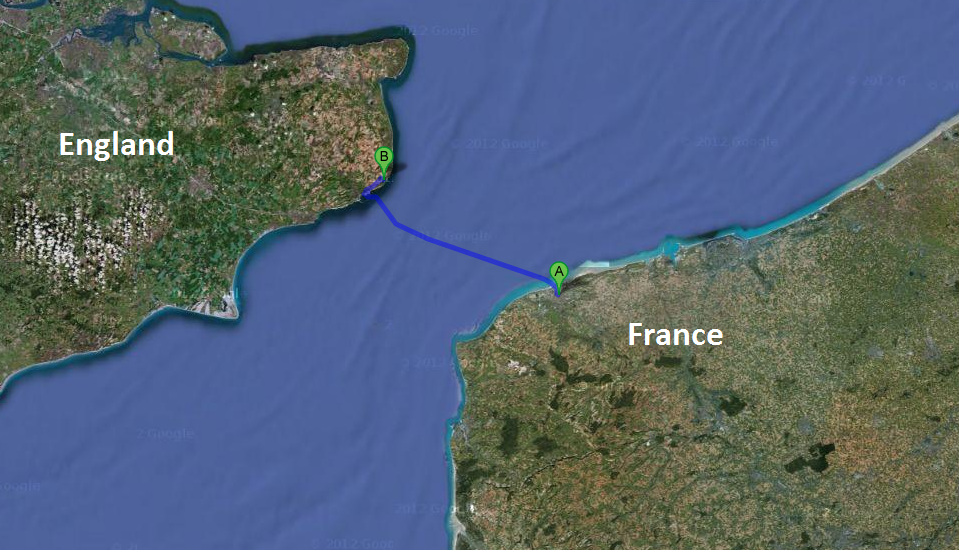Nobody likes roaming charges, but when you travel abroad, they are an unavoidable fact of life. I’ve heard many say they will buy a SIM for each country, or use a service like FrenchConnection.fr to work around it; however, when you are in England and get hit with roaming charges because the best network your phone picks up is in France, that’s just ridiculous!
The Digital Spy has reported that beach goers in Kent are getting unexpectedly connected to French mobile providers. St Margaret’s Bay is just 18 miles from France, the closest point between France and England which is where the ferry and the Chunnel pass from each side. In addition, due to St. Margaret’s large white cliffs that line the bay, beach goers are unable to pick up mobile provider EE’s connection, and so EE has issued a statement warning beach goers to turn off roaming while in the area:
A spokesman from phone company EE advised residents and visitors in St Margaret’s to switch off roaming while in the area to avoid getting “Welcome to France” messages.
While the Digital Spy article mistakenly claims that EE owns both Orange and Deutsche Telekom (EE is, in fact, a jointly-owned subsidiary of the two European TelCo powerhouses), it does mention an interesting point, which is that EE cannot control whether you pick up, say, Orange’s mobile network from the beach.
In recent weeks, the two parent companies have been in talks with the EC about creating a pan-European mobile network, which actually would address this issue (assuming they brought EE into the mix).
One commenter pointed out something quite interesting, which is that while the US cannot get one mobile provider who crosses the entire country, France’s networks are accidentally jumping borders.
As Europe becomes more & more a cohesive network, things like roaming charges will be brought into question more & more – if I have Deutsche Telekom and go to the US, should I really get charged roaming fees to use T-Mobile? If I’m an Orange user in France, can’t EE cover me in the UK?
For now, it seems that the 2,500-person region of St. Margaret’s will just have to be more cautious about spontaneous “welcome to France” messages popping up on their cell phone.
Did you like it? 4.5/5 (23)








